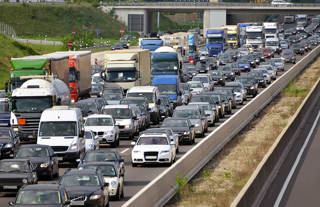Running rental fleets of the most modern and popular vehicles is becoming more expensive.
The April 2017 reforms to Vehicle Excise Duty (VED) have already meant that a new car with CO2 emissions of 90g/km and a list price of £40,000 or less on a four-year cycle costs £520 over four years. Previously a vehicle of this category would not have incurred any VED.
On top of that, the latest Budget brought further increases to VED for diesel vehicles registered after April 1 this year.
With a goal to deliver the most environmentally sound options, rental companies want to be able to adopt as many low emission vehicles as possible, but the current lack of infrastructure, combined with limited driving range is hampering this.
The new VED categories have also added cost to the adoption of low emission vehicles on rental fleets.
Operating modern vehicles is more expensive than ever, as hybrid and connected technology adds to the complexity and, therefore, cost of repair and maintenance.
In addition, increasing fuel prices are a further challenge for the rental supply chain. Rental customers pay for their own fuel, but the rental companies still incur fuel costs to underpin the complex logistics of moving vehicles around.
Another factor that is hitting the costs for the supply chain supporting corporates who need to keep their employees mobile is the increases to the minimum national living wage.
From April 1, the living wage paid to workers aged 25 or over rose from £7.50/hour to £7.83/hour– a 4.4% rise.
Taking into account national insurance and pension contributions, which are also increasing in 2018, for a typical delivery driver or valeter this equates to an approximate year-on-year increase for the employer of £750.
As one of the most efficient, process-driven service sectors, the rental market offers highly competitive pricing. But now, facing external costs that can’t be reduced by improved processes, some of the increased costs will have to be passed on to customers.
The key is to ensure this is achieved with full transparency, so customers understand why and where additional costs will be incurred.
By Gary Smith, managing director of Europcar UK Group



















Login to comment
Comments
No comments have been made yet.